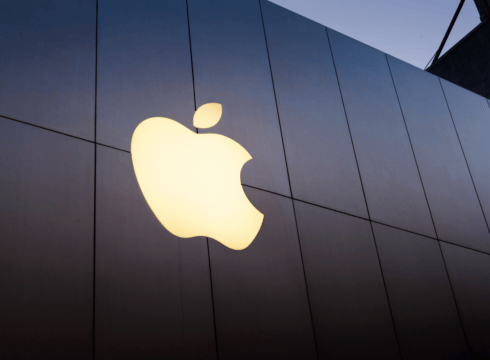Through UPI Autopay, users can set up automated payment options for recurring payments
This comes a year after Apple added UPI and net banking as payment options for Indian users
Google also introduced UPI Autopay as a payment option for subscription-based purchases on its app marketplace in India last year
Inc42 Daily Brief
Stay Ahead With Daily News & Analysis on India’s Tech & Startup Economy
Tech major Apple has introduced the Unified Payments Interface (UPI) Autopay as a new payment option for subscription-based purchases on its App Store in India. Via UPI Autopay, users can set up automated payment options for recurring payments using any UPI app that supports the feature.
The development came to light as Apple emailed its Indian customers to tell them about the feature.
“With UPI AutoPay you can now pay for new streaming services, games, music, movies and more. It’s simple, secure and easy to set up,” said the email seen by Inc42.
Inc42 reached out to Apple India for comment. The story will be updated with the response as and when it is received.
The new development comes nearly a year after Apple added UPI and net banking as payment options for Indian users on its App Store. This had come right after the Cupertino-based company stopped accepting Indian debit and credit cards for payments related to subscriptions and app purchases on its App store.
The National Payments Corporation of India (NPCI) launched UPI Autopay way back in 2020 to enable payments for recurring payments such as mobile bills, electricity bills, EMI payments, OTT subscriptions, and others.
The shift to UPI Autopay has largely been the result of a slew of guidelines issued by the Reserve Bank of India (RBI) in the past four years that sought to crack the whip on recurring payments without the explicit consent of users, and to ensure safety and security of card transactions.
UPI Autopay Gathers Steam
Beginning in 2019, RBI issued a circular that directed all issuers processing recurring transactions to send a pre-transaction notification to the customer at least 24 hours in advance for payments up to INR 2,000.
Afterwards, when banks and other players said they were not fully prepared to comply with the norms, the implementation was postponed to 2021. Later, RBI also raised the threshold for such automatic payments to INR 5,000 INR per transaction to accommodate industry demands.
Subsequently, both Google and Apple reflected the changes in their policies to accommodate the new norms. These two players see a good chunk of revenue come from automatic payments through services such as in-app offerings and subscription services.
But, the deployment of UPI Autopay gathered more steam after RBI notified new rules for the storage of card details, which eventually came into effect from October 1, 2022.
Under the new rules, only the card network, the card issuing bank and the end user will know the actual card details. Merchants, payment gateways/ payment aggregators and acquiring banks have to use tokenised data and cannot store card details.
With Apple already not accepting debit cards for subscription services, the UPI Autopay appears to have come at an opportune time for the tech major. The service will enable the company to easily offer and scale its subscription services through UPI-linked accounts without any hitch.
The move also comes at a time when the company is witnessing good growth in India. During the company’s earnings call in February earlier this year, CEO Tim Cook indicated that despite significant headwinds and a challenging macroeconomic environment, markets like India did significantly well.
“We actually did fairly well through COVID in India. And I’m even more bullish now on the other side of it, or hopefully, on the other side of it. And that’s the reason why we’re investing there. I’m very bullish on India,” he said then.
Overall, India has emerged as an important manufacturing hub for the Cupertino-based tech major. Apple exported iPhones worth over $2.5 Bn between April and December last year, even as outbound shipments in December alone crossed the $1 Bn mark.
{{#name}}{{name}}{{/name}}{{^name}}-{{/name}}
{{#description}}{{description}}...{{/description}}{{^description}}-{{/description}}
Note: We at Inc42 take our ethics very seriously. More information about it can be found here.


